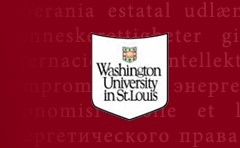China's Amended Constitution: Quest for Liberty and Independent Judicial Review
Publication Title
Washington University Global Studies Law Review
Abstract
Whether China’s model of judicial review will evolve into a more discursive, independent model is a pressing issue in international law and politics. This issue has gained even greater prominence after China’s accession to the World Trade Organization (WTO). Rule of law, and its attendant judicial review, facilitates economic growth because it affords stability, transparency, and fairness to the entire economy. The directional growth and development of Chinese constitutionalism has national, interregional, and international implications that affect the growth and prosperity of both China and the world’s economy.
On March 14th, 2004, China amended its 1982 Constitution. Past amendments to the 1982 Constitution had mostly addressed economic reform. Conversely, the March 14, 2004 amendments to the 1982 Constitution addressed liberty and human rights, including property rights. These new amendments inadvertently provide a gauge for measuring the “constitutionalism” of China’s 1982 Constitution against modern constitutions.1 For instance, the constitutionalism of the 1982 Constitution may be assessed by whether, under its current constitutional regime, China can give efficacy to a constitutional amendment that supposedly safeguards human rights and rights over private property. Forces that influence China’s constitutionalism include China’s ontological base in tradition (Confucianism), political ideology, constitutional history, and constitutional and governmental structure. The newest amendments also incorporate the ideology of Jiang Zemin’s “Theory of the Three Represents” into the preamble as an additional guiding ideology. These circumstances illustrate how Chinese political ideology and culture affect constitutionalism, the safeguarding of liberty, and the development of a positive and discursive model of judicial review.
Recommended Citation
M. Ulric Killion,
China's Amended Constitution: Quest for Liberty and Independent Judicial Review,
4
Wash. U. Global Stud. L. Rev.
43
(2005),
https://openscholarship.wustl.edu/law_globalstudies/vol4/iss1/3
